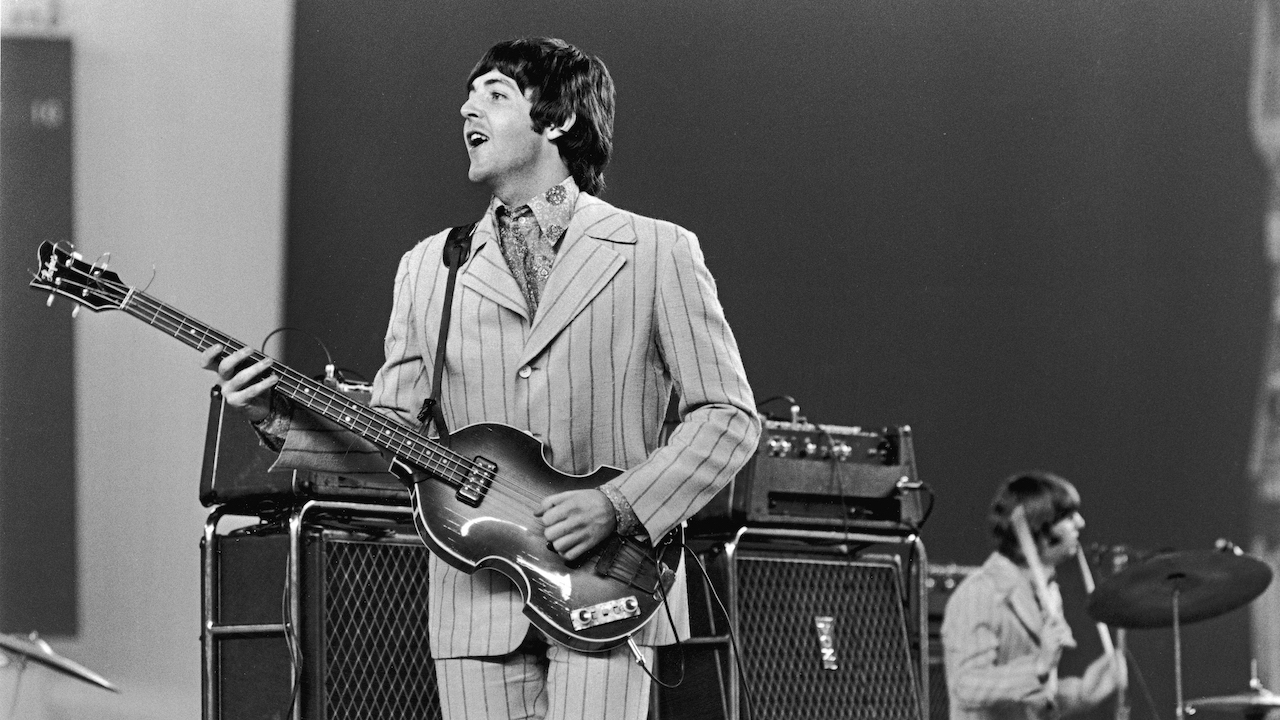Rick Rubin says Paul McCartney is the “best of all bass players”
In a new interview, Rubin has claimed the Beatles icon is the greatest of all time

As one of the world’s greatest ever songwriters, Paul McCartney hardly needs to be recognised as one of the greatest bass players too, but according to legendary producer Rick Rubin, he is exactly that.
Speaking to MOJO magazine (via NME), Rubin said that he believed McCartney was the best bass player of all time and was surprised by the “simple” approach he takes to songwriting.
Rubin was asked how he got Macca talking when he teamed up with the bass-playing Beatle for the series, McCartney 3, 2 ,1.
"I thought about how everything I've seen, Beatles-related, is either about the songwriting or Beatlemania," Rubin reflected. "Paul McCartney the bass player, or Paul McCartney the musician, because he plays everything – that's a little told story. You just think of him as Beatle Paul, yet in my opinion, he is the best of all bass players, he’s number one.”
The super-producer also nodded to Macca's songwriting abilities, noting how he would develop "the simplest thing" into timeless compositions.
“What blew my mind was when he sat at the piano and he started showing me how to write a song,” Rubin said.
“He was saying, ‘See, you could it like this,’ and what he was showing me was the simplest thing, but then he starts moving his fingers around slightly, and all of a sudden it evolves into Hey Jude or Let It Be. He’s using this technique that any child could do, then it morphs into one of the greatest songs of all time!”
Get The Pick Newsletter
All the latest guitar news, interviews, lessons, reviews, deals and more, direct to your inbox!
If proof were needed, dust down a copy of Sergeant Pepper’s Lonely Hearts Club Band, listen to the opening title tracks (remember that McCartney played much of the guitar on the record, too) and then revel in the invention of the bassline on With a Little Help From My Friends.
“He was a great player with a real sense of how to use the bass in a really musical way," said Mr. Big bass virtuoso Billy Sheehan. "Whenever I do clinics I always tell people, ‘Go and learn the whole of Sgt. Pepper – you’ll come out of it a better bass player.’"
Abbey Road was another iconic album considered by many to be a high point of the Fab Four’s career, with McCartney’s acquisition of a Rickenbacker bass in the mid-'60s helping him to experiment with basslines that used high notes and wide arpeggios, including the octave plus a minor 3rd from D to F on Come Together.
The history of the iconic London studio has recently been charted in a new documentary made by McCartney’s daughter, Mary McCartney.
If These Walls Could Sing features interviews with McCartney and fellow Beatle Ringo Starr, alongside the likes of Elton John, Nile Rodgers, and Noel and Liam Gallagher.
“It was quite a complicated documentary to put together, because it’s not about a person or a life story. It’s about a building,” Mary McCartney told NME. “You can tell people really care about Abbey Road, but it’s like, ‘Why do they care about Abbey Road?’ And I think that’s the thing that I wanted to explore.”
If These Walls Could Sing is available now on Disney+.

Nick Wells was the Editor of Bass Guitar magazine from 2009 to 2011, before making strides into the world of Artist Relations with Sheldon Dingwall and Dingwall Guitars. He's also the producer of bass-centric documentaries, Walking the Changes and Beneath the Bassline, as well as Production Manager and Artist Liaison for ScottsBassLessons. In his free time, you'll find him jumping around his bedroom to Kool & The Gang while hammering the life out of his P-Bass.
“When I first heard his voice in my headphones, there was that moment of, ‘My God! I’m recording with David Bowie!’” Bassist Tim Lefebvre on the making of David Bowie's Lazarus
“One of the guys said, ‘Joni, there’s this weird bass player in Florida, you’d probably like him’”: How Joni Mitchell formed an unlikely partnership with Jaco Pastorius












